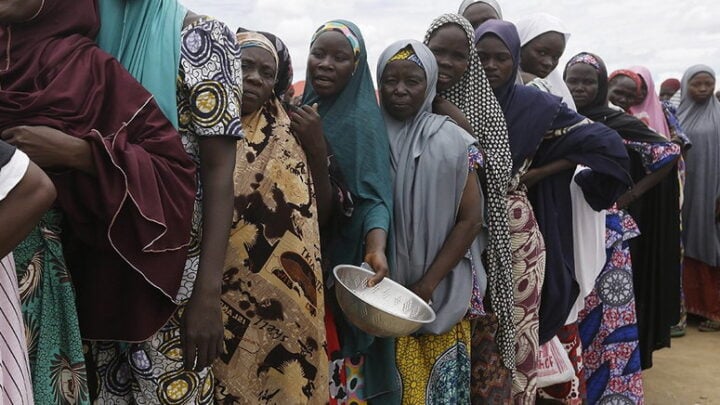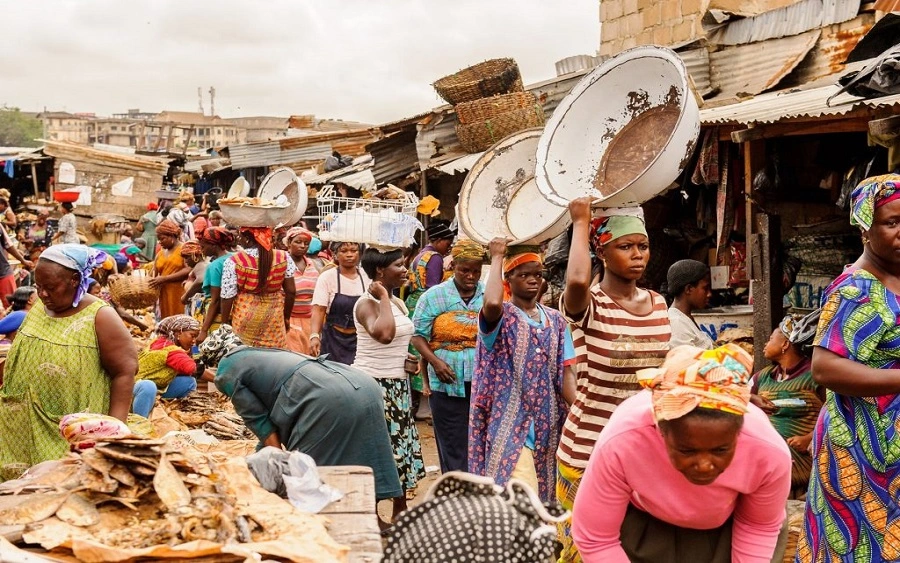A well-organised social protection system and targeted investments in healthcare and education will push Nigeria out of the poverty trap.
The Institute for Governance and Economic Transformation (IGET), an innovative public policy think tank, said this on Monday in its latest policy document titled “Nigeria’s poverty trap – and how to end it.”
Last week, the National Bureau of Statistics (NBS) said 133 million Nigerians, representing 63 percent of the population, are multidimensionally poor.
According to IGET, poverty is a significant strategic threat to Nigeria’s future, and the country requires a new elite development consensus on development across divides, as well as a unity of purpose. It said the development consensus should focus on the human development of its 216 million citizens to start making meaningful progress in the eradication of poverty.
Advertisement
It added that the agreement should focus on creating a broadly prosperous society that would lift millions of Nigerians out of poverty and move them into the middle class through wealth creation.
The report also itemised various policies and programmes the government can embark on to exit the country’s poverty trap.
“Suggestions for eradicating poverty include, as a top priority, increased and carefully targeted investments in healthcare and education, creating an environment that encourages the creation of jobs in the private sector, bold fiscal reforms to increase government revenue through effective taxation and the elimination of wasteful fuel subsidies while mitigating the potential effects of subsidy removal on already poor citizens, and such other macroeconomic reforms as exchange rate adjustments,” the report reads.
Advertisement

“Abolition of the Land Use Act, civil service and security reforms to improve state capacity and gender empowerment, intensified family planning education and services, and resolution of the conflicts in various parts of Nigeria that have caused and exacerbated poverty through internal displacement and decreased food production are all structural changes necessary to enable millions of Nigerians to escape the poverty trap.
“It is essential to make targeted investments to prevent or manage disasters brought on by climate change, such as floods and droughts. Along with revamping the microfinance banking system and implementing hourly pay jobs, it remains crucial to use market-oriented mechanisms such as investing in venture capital funds run by the private sector to promote access to capital and job creation.”
The think tank group added that the social protection system in Nigeria is insufficient, ineffective, and therefore mainly ineffectual.
Advertisement
“In spite of several initiatives taken over the last 52 years by various administrations, poverty rates in Nigeria have remained high. Poorly designed social protection measures, limited coverage, a lack of consistency, a lack of data, and corruption are some of the causes of inadequate social protection.
“Rethinking social protection remains necessary. Each administration that is voted to office implements its plans that are mostly ad hoc, often discarding earlier plans by previous administrations. It is necessary to have a social protection system that is well-organised, expertly planned, and supported by national law.
“Additionally, such a comprehensive social protection system needs to be independently and expertly examined, reviewed, and monitored to stop leaks caused by fraud and corruption. Implementing these measures while incorporating structural reforms will increase the chances of controlling the rise of poverty as a growth industry in the short term, while structural reforms will start to show results in the medium term.
“It is necessary to have a social protection system that is well-organised, expertly planned, and supported by national law.
Advertisement
“We advocate the implementation of a social security program for Nigerians 65 and older. Nigerians in this age range number 5 million. These senior citizens could be effectively covered by guaranteed social security payments if the Federal Government of Nigeria were to successfully plug fiscal revenue leakages such as oil theft (estimated to cost $700 million per month or $8.4 billion per year) and direct misappropriation of public funds, combined with effective saving and management of a social security fund.
“We believe Nigeria can set aside N5-7 trillion yearly to fund the operation of a thorough, well-managed social security system, as well as a comparable, separate allocation for education, healthcare, water, and sanitation. To save money in other areas of government, infrastructure projects should be financed mostly through public-private partnerships with the exception of rural infrastructure. The cost of governance should be reduced.”
Advertisement
Citing Brazil and China as significant case studies in eradicating poverty, IGET advised the Nigerian government to carefully adopt ideas from both nations’ strategies and modify them for local circumstances.
Advertisement
Add a comment






